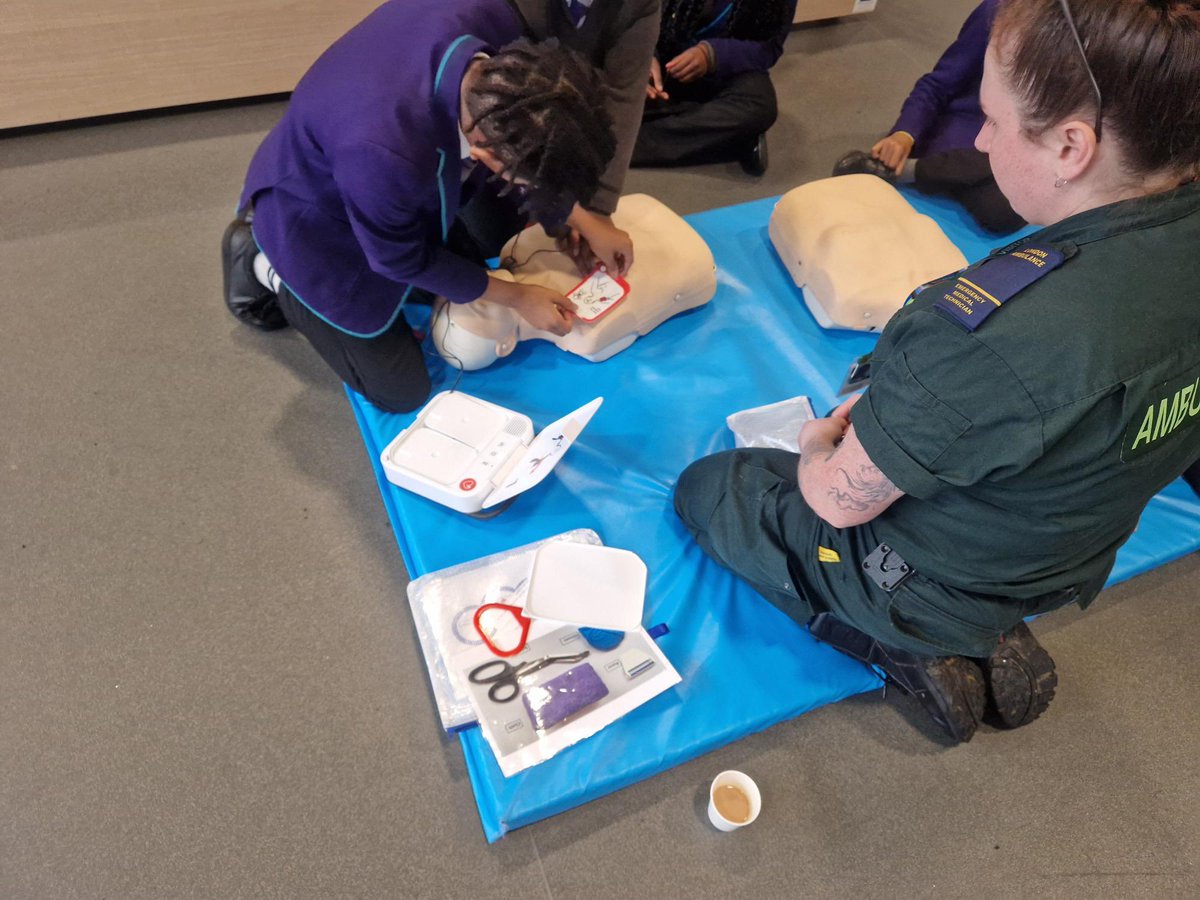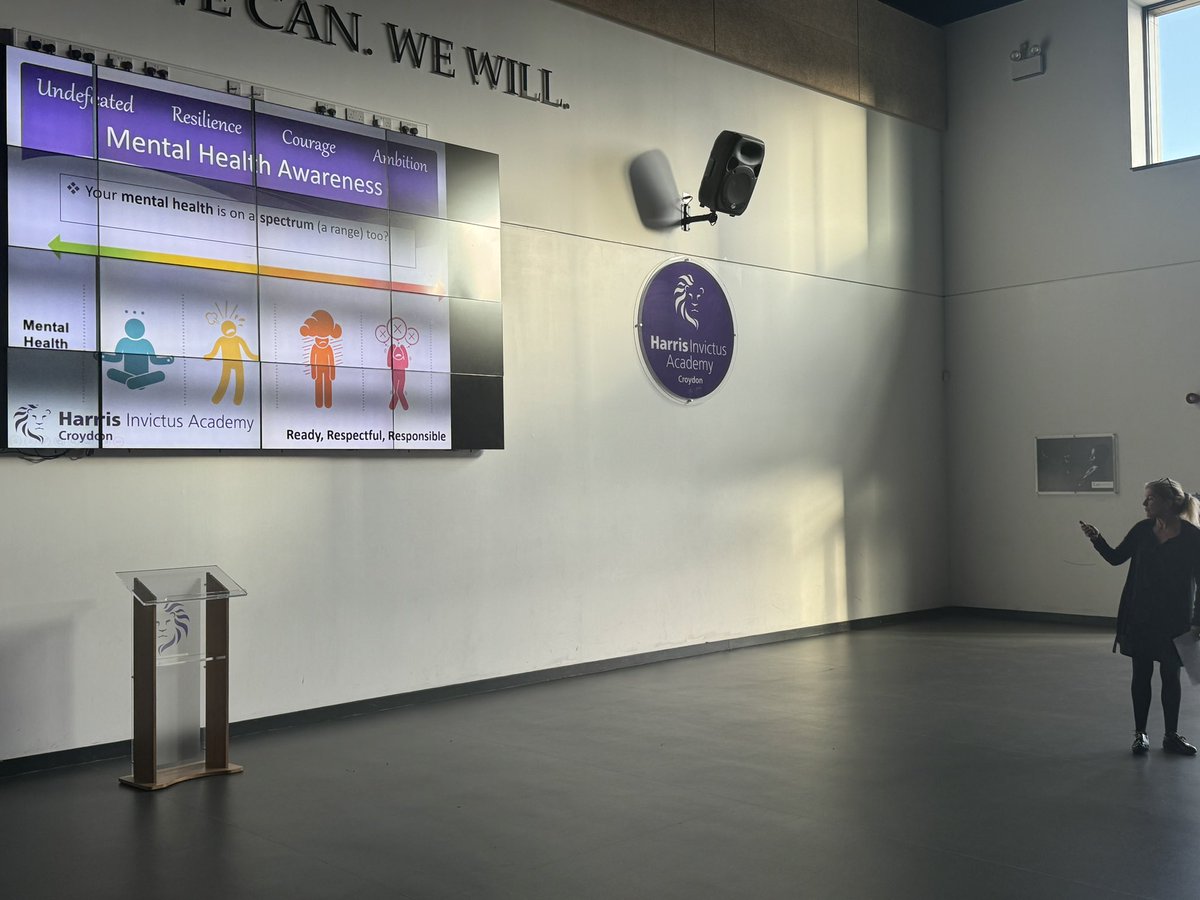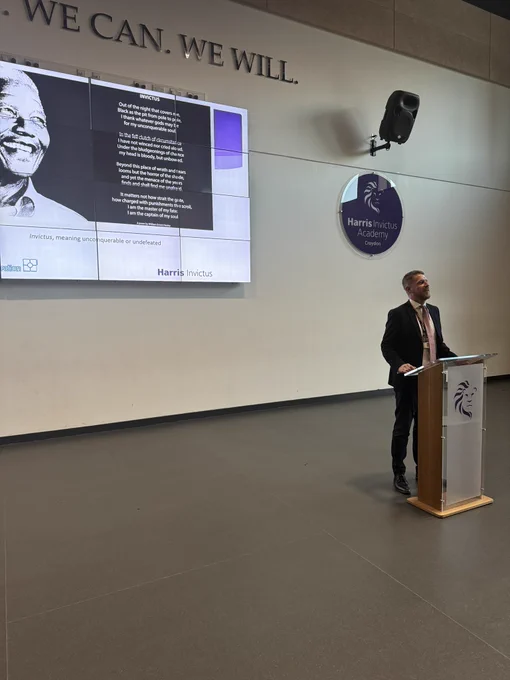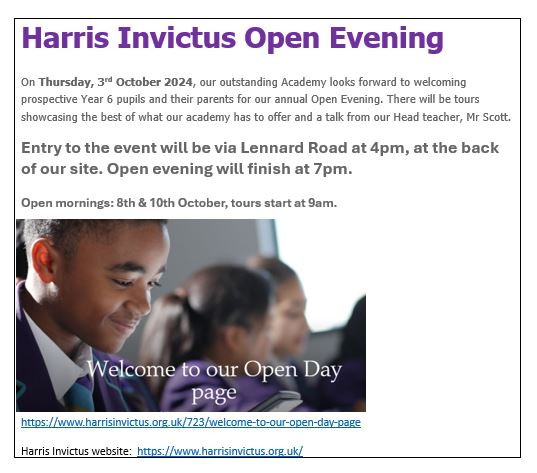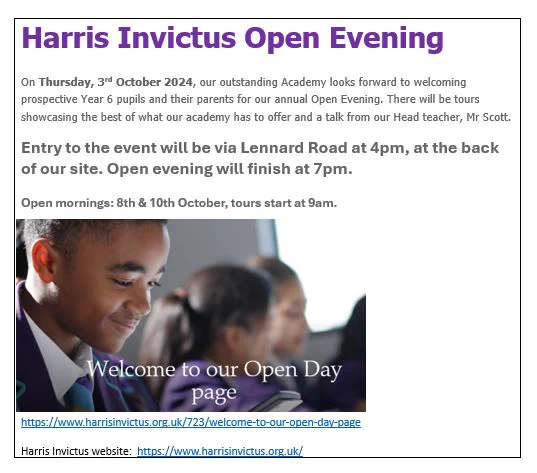Literacy
Sir Kevan Collins, former chief executive of the EEF, explains:
‘Literacy is fundamental for success in school and beyond. Young people who leave school without good literacy skills are held back at every stage of their lives.’
At Harris Invictus Academy Croydon (HIAC), we acknowledge that in today’s diverse and global world, to read, write, think and communicate like a scientist, historian, writer, musician, artist or mathematician are important considerations for secondary teachers and their students. Coupled with this, is the broader literacy curriculum considerations, that is, literacy also encompasses the cultural references students need to read widely, identifying and considering the perspectives, privilege, message and source of the texts they consume to meet the demands of challenging exam texts and beyond. Ultimately, we recognise that literacy is a broad term for the multiple skills and knowledge which pupils need to be fluent readers, writers and speakers.
Consequently, we also recognise that being literate requires students to become a variety of readers, writers and performers (Gee, 200). With this in mind, we put the student at the heart of everything we do, surrounded by experts and key services. (Fig. 1). The Education Endowment Foundation’s first pillar, Disciplinary Literacy, is the bedrock for curriculum and instruction at the academy. ‘Teachers must therefore apprentice students through scaffolded instruction and guided practice helping students to develop the capacity to read disciplinary specific texts through an insider perspective (Beuhl, 2011). As an academy we provide academy wide literacy training complemented with subject area training to design curriculum and lessons which teach the necessary literacy skills to succeed in each discipline. We firmly believe that literacy is not a stand-alone issue: it is a multi-faceted issue with many challenges; it takes excellent curriculum design; excellent teaching and learning; targeted intervention and cross-curricular effort to ensure our pupils have the tools to succeed.
Figure 1

Rationale
HIAC’s literacy policy has been informed by recent research led by The Education Endowment Foundation’s ‘Improving Literacy in Secondary Schools’, research endorsed by The National Literacy Trust. It is also informed by the work of Alex Quigley’s The Vocabulary Gap, Doug Lemov’s Reading Reconsidered and Daniel Willingham’s The Reading Mind.
Our literacy priorities for this academic year:
- Applying Disciplinary Literacy
- Specific Literacy Training for Staff
- Management and use of data
- Use of the Library








